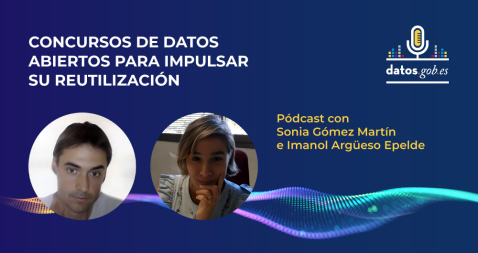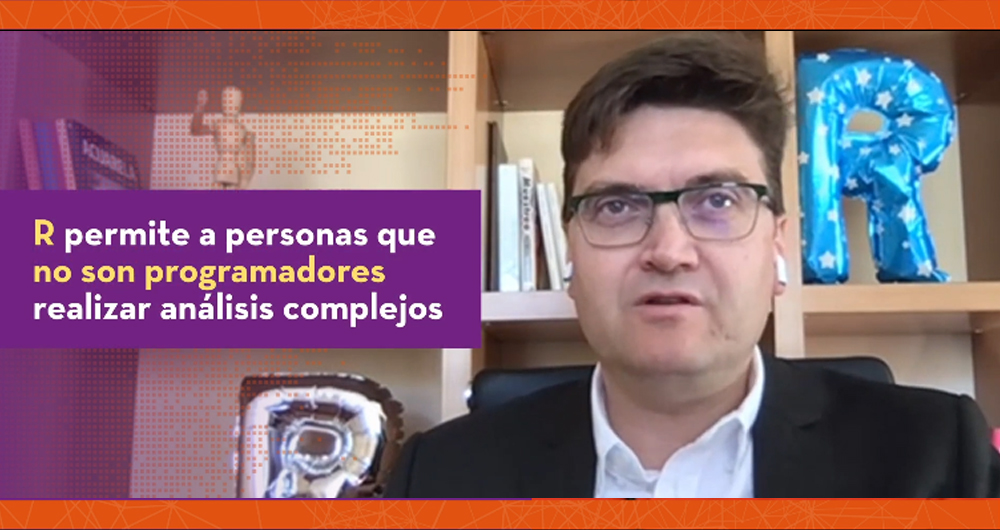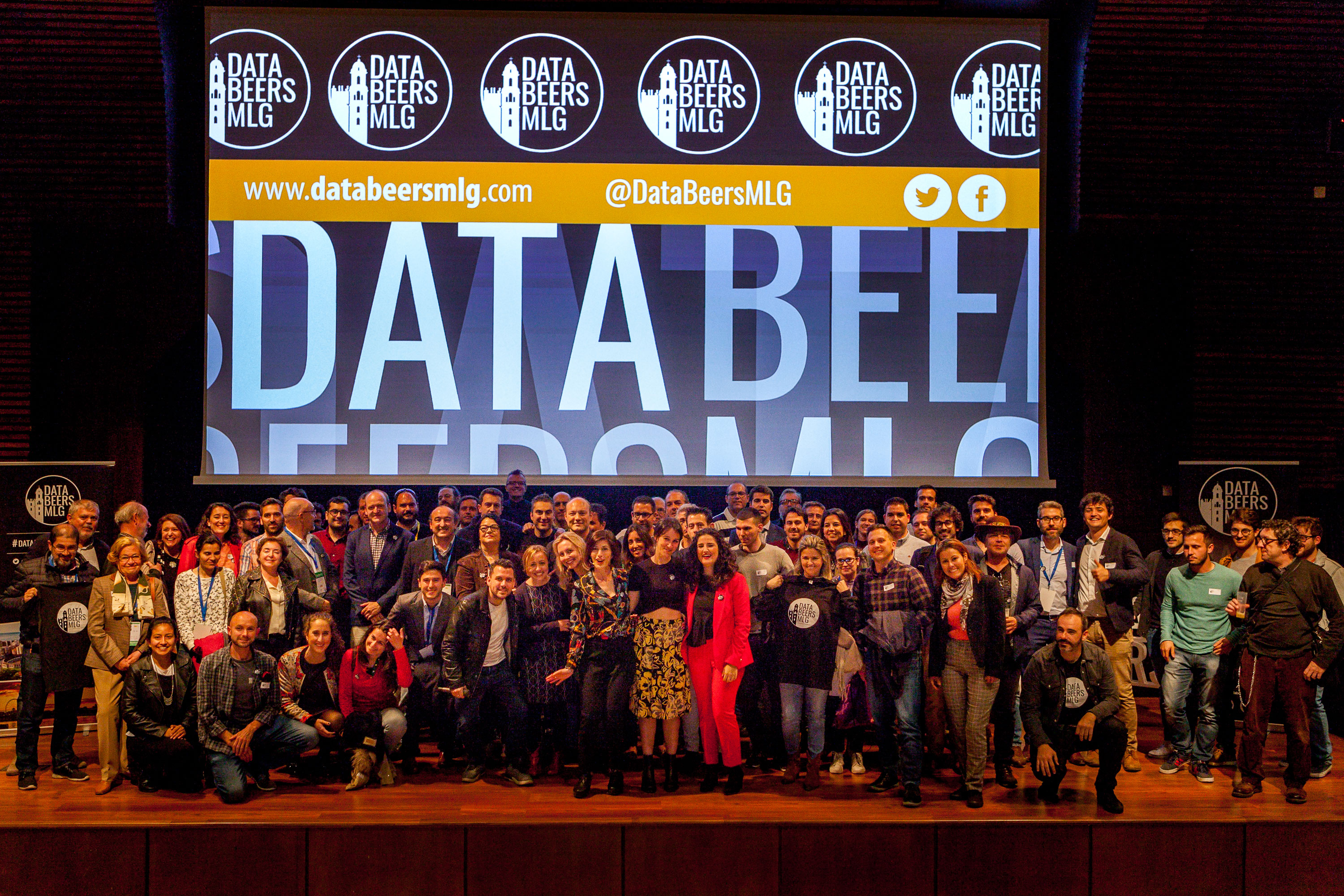Podcast: Data contests to drive reuse
Fecha: 19-09-2024
Nombre: Sonia Gómez Martín, Head of the Transparency and Information Re-use Service of the Junta de Castilla y León, and Imanol Argüeso Epelde, Head of Projects at the Basque Government's Directorate for Citizen Services and Digital Services.
Sector: Public sector

Data has great power to transform society. Its capacity to generate knowledge, drive innovation and empower citizens is undeniable. In particular, open government data is a resource with which to address major environmental, social and economic challenges from an innovative perspective.
In this sense, public administrations, including the autonomous communities, are organising competitions to promote the data culture. To tell us about these initiatives we have interviewed:
- Sonia Gómez Martín, Head of the Transparency and Information Re-use Service of the Government of Castilla y León.
- Imanol Argüeso Epelde, Head of Projects at the Basque Government's Directorate for Citizen Services and Digital Services.
Listen to the podcast (only available in Spanish)
Summary of the interview
1. To begin with, you can briefly present your data initiatives. What kind of data and contents can we find in the Open Data Euskadi platform? And on the Junta de Castilla y León's Open Data platform?
Imanol Argüeso Epelde: In OpenData Euskadi, the Basque Government's open data initiative, there is a catalogue of around 12,000 datasets from the Basque Government, the three provincial councils of the Autonomous Community of Euskadi - which are Vizcaya, Guipúzcoa and Álava - and the three capitals of these territories. By means of a federation system, all your datasets are displayed in the catalogue.
In addition, there is a community section, where we show news that we consider relevant to the world of open data. We also have a section for competitions and examples of products that have been made with our data.
Sonia Gómez Martín: All of this is similar to what can be found on the Junta de Castilla y León's open data platform. In our case, the open data catalogue only includes data from the Autonomous Community administration itself, not from the different provincial councils or provincial capitals.
In addition to the data catalogue, we have a visualisations portal, where we accommodate data with a large volume of information and where visualisations and API queries can be made. These data are thematic: there are up to 21 categories such as health, public sector, culture, leisure, rural environment and fisheries, and so on.
2. What activities are you carrying out to promote the re-use of this data?
Sonia Gómez Martín: The main activity in recent years has been the organisation and the annual Open Data Competition, through which we encourage reusers to use at least some dataset from our catalogue to create products, services and teaching resources.
There are also a number of other internal activities. For example, courses are run with our training school for internal staff of the Junta, so that they know the importance of reusing information generated within the public sector and making open data available to citizens and businesses.
In addition, there is a news section on the portal and we also receive requests for the dissemination of applications or the opening of data.
Imanol Argüeso Epelde: We also give courses within the Basque Government and to other administrations. For example, this year we have given one to the Provincial Council of Alava. We also have an initiative called Aula Open Data at the University of the Basque Country, located at the School of Engineering in Bilbao. It is a business classroom designed for students to use open data, make applications, visualisations and services derived from the data, and learn about this tool for their future professional activity.
We also participate in any event, conference, talk, etc. When an event related to open data comes up, we usually participate.
3. You have already introduced us to the data contests you organise. Can you tell us a bit more about each of them?
Imanol Argüeso Epelde: In the case of the Basque Country, there are two calls: one for applications and the other for ideas. The registration period for the 5th edition of the two calls is now open, and ends on 10 October.
In the case of the applications competition, any product derived from the open data of any of the catalogues of the Basque Government, provincial councils and the three capitals of the Basque Country will be awarded. It is mandatory to use some dataset from these catalogues. All that is requested is a URL with the service or product to be developed and a short document describing the project.
In the case of the call for ideas, a document explaining an idea for an open data product is needed.
We distributed around €34,000 in prizes in different categories.
It is also important to note that, although it is organised by the Basque Government as such, the three provincial councils and the three town councils of the Basque capitals collaborate: they participate in the jury, help us with promotion, etc.
Sonia Gómez Martín: In our case, it is a single call, but there are four categories. A category of ideas is also established, similar to that of the Basque Government. Another one for products and services that is also similar to the one Imanol mentioned: we are looking for an application or URL where a website is developed that uses some dataset from our catalogue. And then there are two additional categories. One for teaching resources, which seeks to encourage the creation of new and innovative open teaching resources using datasets from our portal to support classroom teaching. And another category of data journalism, which seeks to reward journalistic pieces published or updated in a relevant way in any written or audiovisual medium, where the information takes into account open datasets from our catalogue.
We give away €12,000 in prizes in total. And well, right now we have the 8th edition open until 23 September 2024.
4. What are the requirements for participation?
Sonia Gómez Martín: Entries must not have previously been awarded prizes in other competitions. In all categories it is necessary to use at least one data source from the catalogue of the Junta de Castilla y León's open data portal. And the same person can submit several nominations in different categories.
In the case of data journalism, it is sought to have been published as of the last day on which nominations could be submitted the previous year, which in this case is 3 October 2023.
In the case of the products and services category, there are awards for students, where the applicant must be a student enrolled in the 2023-2024 or 2024-2025 academic year.
Imanol Argüeso Epelde: The case of the Basque Country is similar. It is requested that some dataset from the public open data catalogues we have discussed be used: from the three provincial councils, the three capitals or the Basque Government. In the case of applications, it is also necessary to develop some kind of application, visualisation or website based on this open data.
Both competitions are open to any private individual, professional or even any company.
I would like to take this opportunity to encourage people. The deadline is 10 October and anyone interested still has time to submit an idea or generate a product.
5. And what has been the impact of these competitions? can you give us some examples of solutions, ideas or products that have been submitted to the competition?
Sonia Gómez Martín: There are very interesting things, especially in what the students bring to the table. In the editions in which I have been part of the jury, I have seen, for example, an application, a website, which included the entire offer of vocational training in Castilla y León. Also an analysis of energy data which I found very interesting. In addition, some institutes have submitted and won awards for initiatives based on agricultural information catalogues. They made a small analysis of the peculiarities of our territory.
Imanol Argüeso Epelde: The truth is that most of the products that are generated are not still active. But there are some very interesting examples that still work today. To cite an example, the last edition presented a website called Openslot, which offers information on gaming and recreational machines in the Basque Country: manufacturers, machine models and makes predictions. It is a very sector-specific application.
Another example: last year, a Telegram group that relied on open data to provide information on which time slots are best for energy consumption was the winner and is still active. There are some products that last over time and others that are developed only for competitions.
6. What advice would you give to other public bodies wishing to launch such initiatives?
Imanol Argüeso Epelde: Above all, I would stress the importance of dissemination, of promoting the competitions in training centres, in universities related to information technologies.
It has also worked for us to include a voting system so that people can vote on the nominations. And this year we have included different categories by theme, in the case of ideas. In the case of applications, it is assessed whether access to the data is via an API or the SPARQL point. What we want to do is diversify and make more people eligible for the prize.
Sonia Gómez Martín: I would like to insist on what Imanol said about promotion. It is very important to make universities aware of the competitions and to encourage them to participate. You can also publicise it on social networks, on your portal datos.gob.es, etc. Everything little by little is helping to make them known and to increase the number of participants.
7. These competitions are a window to listen to the needs of re-users, have you taken any concrete action as a result of this feedback?
Sonia Gómez Martín: We have, on the open data portal itself, a section where we receive requests from re-users on what types of open data they would like to have. We receive them and we pass them on, but it is true that internally we sometimes have problems for the data they demand to materialise. It is not always easy for the management centre on which these data depend to convert them into open or even structured data formats.
On social media we also have an account on X, @transparencia, where we also receive requests, evaluate them and study them.
Imanol Argüeso Epelde: Yes, it is true. Normally, open data areas are often mere transmitters and it is sometimes difficult to materialise requests. I think that one of the great advantages of the competitions is that, internally, it is a very interesting source of information to listen to the reusers, to see what problems they have, what tools they use, what characteristics they have... and this allows us to focus our efforts.
Following this source of information, we have opened up certain datasets. The example I mentioned, Openslot, uses data that was not open and that we opened as a result of this participant. We have also developed several REST APIs based on the most demanded data: meteorological data, air quality, water quality, etc
Subscribe to our Soundcloud profile to keep up to date with our podcasts
Interview clips
Clip1. What does the Euskadi open data contest consist of? (only available in Spanish)
Clip 2. What is the Castilla y León open data contest? (only available in Spanish)














